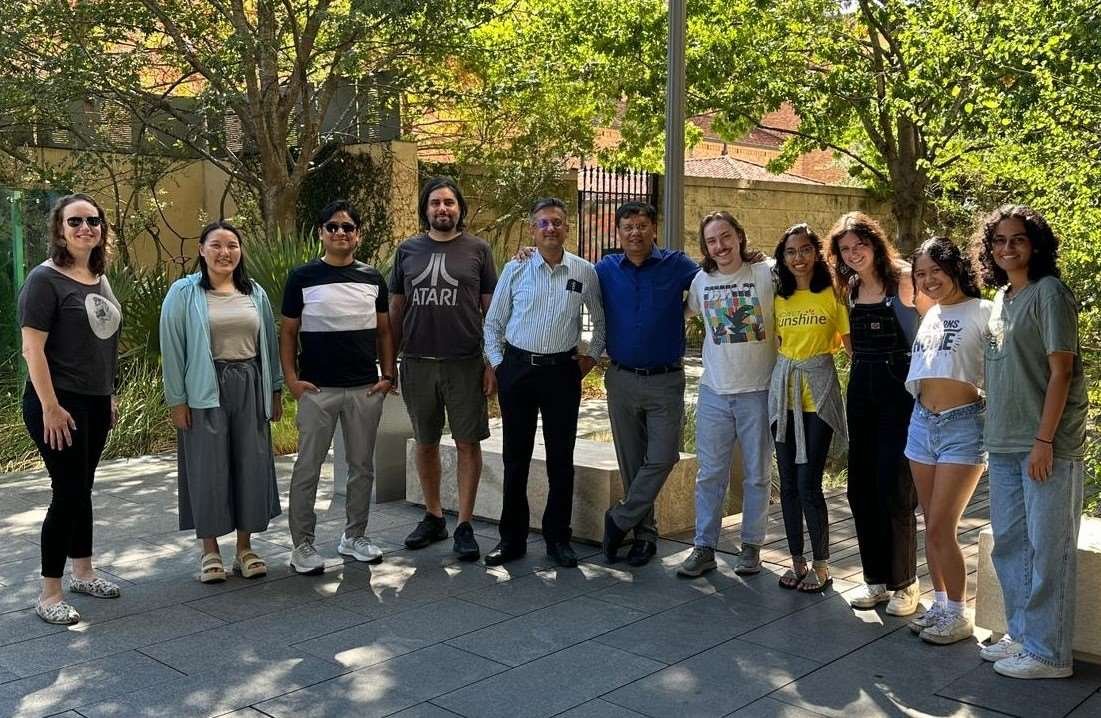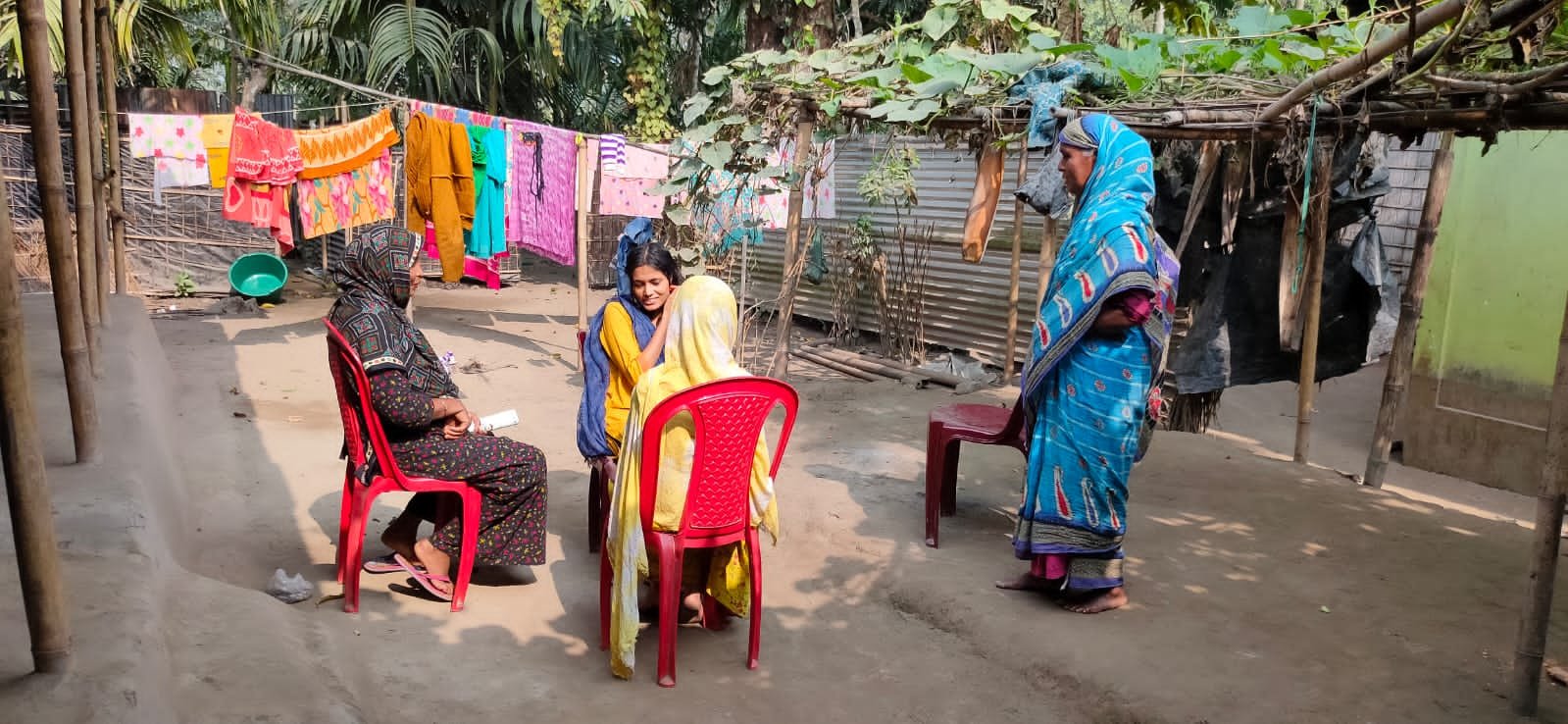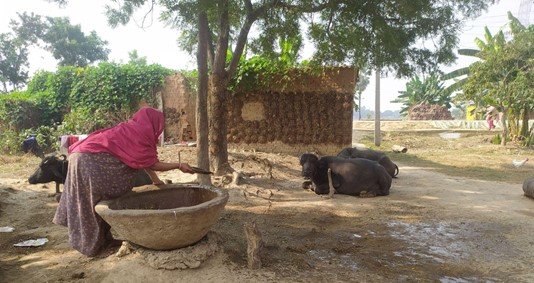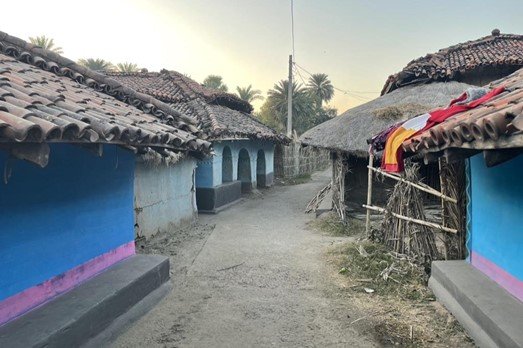Cycle 9 (2020 Deadline)
Young wives: an exploratory study of married women below twenty and the socio-cultural determinants of their contraceptive behavior in low resource settings in India
PI: Sudipta Mondal (smondal@pciglobal.in), Project Concern International, India
U.S. Partner: Cristine Legare, The University of Texas at Austin
Project Dates: March 2022 - April 2024
Project Overview  | | Group photograph with Prof. Legare and the team. |  | | Interviewer explains the study to a household in Dharmoshala (Dhubri) |  | | Woman busy with daily chores in a Muslim household in Dighi (Godda) |  | | Village of Baghmara (Godda) |
Family planning (FP) remains a critical public health priority in India, with a target fertility rate of 2.1% by 2025. However, FP efforts in India have traditionally emphasized female sterilization over strategies to delay first births, which are particularly relevant for young women establishing families. Despite more than 30 million Indian women expressing a desire to avoid pregnancy, many do not use modern FP methods. Existing knowledge about the general determinants of FP behaviors among Indian couples is insufficient for planning effective interventions, as national surveys often overlook the intricate social norms and gender dynamics influencing fertility decisions, including early marriage and conception. This PEER project sought to generate the necessary knowledge for designing interventions aimed at enabling young couples to navigate complex socio-cultural norms and make informed FP decisions that safeguard their well-being. The researchers focused specifically on married women aged 15-19 who have been married for at least a year, residing in states with high rates of early marriage and pregnancy. While policy interventions are in place, it is equally important to understand and address socio-cultural norms and gender roles to effectively delay the first pregnancies of young married women. The project aimed to identify the extent to which FP beliefs and behaviors vary between adopters and non-adopters of modern FP methods, considering these socio-cultural factors.
Final Summary of Project Activities
The researchers developed questionnaires and structured interviews for young wives, husbands, mothers-in-law, frontline healthcare workers, and community influencers, as well as household and community observation guides. The PEER team undertook field work in several villages across five districts (Godda, Jharkhand, Dhubri, Assam, and Ujjain), sending appropriate research leads based on cultural expectations and collaborations within each area. These surveys and interviews focused on understanding family planning behaviors and choices of young couples and the role of social norms in determining both.
While there were significant differences between districts and even within villages, the researchers in general found challenges and gaps in family planning among young wives and their husbands, including restrictions on their mobility and decision-making power. Communication about family planning between spouses is lacking, with husbands often making the final decision on contraceptive methods. Misconceptions about family planning methods are common, and access to information and counseling is limited for both young wives and husbands. Regressive social norms related to fertility are a hindrance to higher uptake of contraceptives among newly married young couples in rural areas.
The researchers identified social norms and gender roles are two critical elements that need immediate attention from the FP programs targeted at young wives. They recommended programs break the “silence” around topics related to FP usage by promoting increased discourse at the family and community level, tailoring programming to local norms. The team also identified the importance of engaging not only young wives but also family members, community influencers, and frontline healthcare workers. Family members play significant roles in decision-making regarding reproductive health, so engaging them in discussions and education can lead to more informed choices. The PEER team also recommended that FP initiatives should extend their focus beyond solely measuring the total fertility rate. Instead, they should prioritize timing and spacing on the family-building journey, especially programs that actively contribute to the increasing social and economic ambitions of young women in India.
The PEER team has several papers forthcoming and will use data collected for future research. The PI Dr. Mondal also presented their findings at the Population Research Center at the University of Texas at Austin and several state-level dissemination workshops, as well as collaborated with local and international NGOs. As of May 2024, the researchers had also received three additional grants for this work, for a total of $97,000.
Back to PEER Cycle 9 Grant Recipients
|







